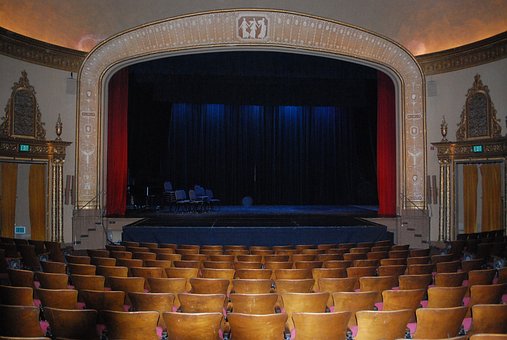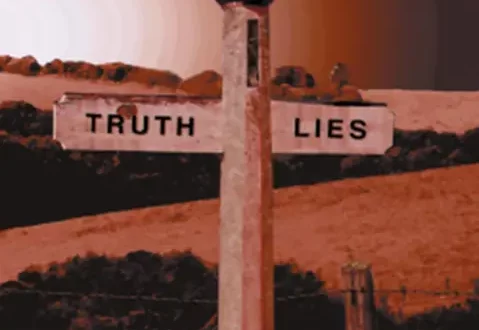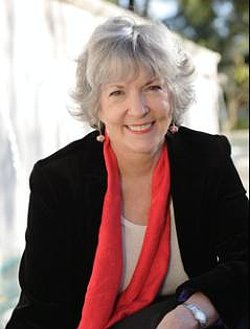
Exit Stage Left.
A writer’s journey Part 3 – another dream bites the dust)

You know the score. You start to get the hang of something, maybe excel here and there, and suddenly you’re invincible. Your confidence soars. You say something profound … and silence.
Or worse still, laughter.
It’s difficult enough, fitting in with children who come from a different background, especially when you want to hide your humble beginnings. It takes a lot of effort, observing and learning, knowing which lies to tell and when to remain silent.
But finally you blend in. You make sure you don’t do anything that will draw attention or make you look silly. You grow in confidence, able to relax a little, knowing you’ve got this taped.
Away from school, you can be yourself, playing football in the streets, hanging about with the kids on the estate. With no television to distract you, or keep you downstairs, you could then go to your room to read books and write stories.
When you were reading, did you write down words you didn’t understand in a notebook? Did you look them up in a dictionary, letting your vocabulary grow and flourish in the exciting and inventive stories you wrote for English homework?
It’s not showing off to know a lot of words.
It’s a practical skill, essential if you want to write stories.
When I won a national short story competition at the age of 12, the prize meant more than the winning. £1000 worth of Action Man figures, equipment and costumes. In 1971, this was some serious kit.
At school, I said nothing about my success. It wouldn’t be perceived that way by the teenagers around me. (And I had no intention of sharing my winnings with anyone.) One or two close friends found out, thanks to my seemingly endless supply of Action man kit.

The success led me to an unusual request for a 13th birthday present. I wanted a typewriter.
On the morning of my birthday, I came downstairs, my thoughts filled with images of the sleek and snazzy portable typewriter I’d come across in town.
Life hadn’t quite prepared me for a Petite typewriter, made of plastic.
It was all my mother could afford.
To be fair, it worked. My growing acting abilities, founded on fooling my classmates, made sure I looked both surprised and excited by the Petite. And over the coming months, it took quite a beating as my output increased.
At one point, I produced a comic for my friends, drawing cartoons, writing short stories, and adding some quizzes for fun. If memory serves, I managed two issues before the Petite surrendered, unable to take any more pounding from my eager fingers.
With no hopes of a replacement for my 14th birthday, having spent all my savings on a racing bike, it was back to pen and paper. The acquisition of an old black and white TV, from a neighbour who’d got a colour set, took me into a new world.
I’d always enjoyed drama classes, which were only available during the first year of school. Whether it was the chance to play characters or have fun in costumes, I don’t know. Something about playing someone else appealed to me.
Maybe it was an escape from my mundane life. Maybe it was a natural extension of the role I played to fool my classmates. Or maybe it was a link to the characters I created when I wrote.
I’ll leave it to the psychologists to ponder.

One afternoon at school, we were asked to select the subjects we wanted to take for O level, as it was known then. I was allowed eight subjects, which I had no trouble identifying. The teacher collected our lists and then went through each one, on an alphabetical basis like the register.
My surname put me third or fourth in the queue. I sat there, waiting for him to approve of my choices, as he had with the kids before me. He called out my name and then stared at me, as if I’d broken wind.
“You haven’t chosen any sciences, Crouch.”
“I don’t like sciences.”
“You don’t like sciences?” His tone drew a gasp from the class.
In terms of blending in and keeping a low profile, I started to suspect I’d missed the mark with my subject choices.
“You’ll never become anything in this world without sciences, Crouch. We need to make some changes to your choices.”
Whether it was his condescending tone, or my complete misreading of what I was doing, I don’t know. I looked him straight in the eyes and said, “You don’t need sciences to become an actor.”

The silence worried me more than any reaction he might give.
“You want to be an actor?”
“Yeah.”
The laughter started behind me, continued on either side of me, until it reached the front of the class, when the teacher joined in.
I don’t remember feeling embarrassed or foolish. I was too angry, and determined not to give the teacher any satisfaction. When the laughter finally subsided, I looked at him and said, “I’ll swap Art for Biology. That’s all.”
While some teasing was inevitable, a few of the guys in the class commended me on my choice and bravery. While it made me feel better, the dream was shattered. I was in the wrong school if I wanted to do drama.
But I was never going to get into the right school.
I focused on my writing and found a new dream. As TV increased my appreciation of the horrors going on in the world, with famine and war creating ever more queues of refugees, the desire to become an investigative journalist took root.
It peaked when we were informed a ‘careers advisor’ would be calling to interview us with our parents about the opportunities universities could offer. In a portakabin, usually used for art classes, we were greeted by a thin man with a clipboard, bundles of leaflets and a quiet voice. You had to lean forward to hear him.
After the usual spiel, he asked me if I had any career choices I wished to discuss.
With pride and conviction, I said, “I want to be an investigative journalist.”

“That’s not a wise career choice,” he said, without hesitation. “Do you know how many people study journalism? No, well only a tiny number make a career from it. Well over 90 per cent of graduates end up in an entirely different career because there are so few opportunities.”
Having been led to believe this man was here to help, I struggled to counter what he said. I’d expected him to help me, to give me examples of the courses I could take, which universities were the best.
Instead he handed my mother a brochure. “Your son should take Business Studies at Manchester University. It offers endless possibilities.”
Having had another dream kicked into touch, I went home, wishing I’d put up a fight.
In the morning, the talk was about yesterday’s careers advice. Everyone fell silent when our form tutor came in. Immediately, he asked us how the careers’ advice went. When no one responded, I raised my hand.
“I don’t think Manchester University will have enough spaces when we all apply to do Business Studies.”
I should have written a piece for the local newspaper on the episode. Who knows, it could have led to more features, an apprenticeship, national papers and being able to announce myself at the end of a TV news report.
But then life is filled with dashed dreams and missed opportunities, as I was about to learn when I started writing my first novel at the age of sixteen.



